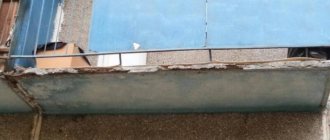Living in an apartment building is very different from living in a private home. First of all this concerns the use of some common areas, for example, a vestibule or landing. The neighbors littered the common corridor. What to do?
Unfortunately, conscientious citizens do not always live on the floor. They use the shared space as if it were their own. Not only do they litter and litter the stairwell or common corridor, but they also don’t wash them, stubbornly ignoring other residents.
- 1 Law
- 2 Resolving the issue peacefully
- 3 Complaint to the management company
- 4 Complaint to the fire inspectorate
- 5 Rospotrebnadzor
- 6 Court
- 7 What should the claim contain?
- 8 Amount of fine
How to deal with unscrupulous citizens? Where to turn if a neighbor has littered the common area? How to correctly write a sample instruction on littering of places of use? And, of course, what is the fine for littering in the entrance of a residential building? We will consider these and other questions below.
Law
Littering the common corridor, apartment hall and other public places in the building, in the long term, poses a great threat. And the point here is far from being a matter of other people’s dissatisfaction with the tenant. This poses a direct threat in the event of a fire.
Any tenant, along with his neighbors, has the right to place certain items in common areas. Things can be stored in the common corridor, but they should not obstruct passage.
Basic information that regulates the rights and obligations in the issue under consideration is contained in the following regulatory documents:
- Federal Law “On Fire Safety” dated December 21, 1994 N 69-FZ. In particular, he says that arranging closets and placing things on landings is prohibited. For fire safety purposes.
- Decree of the Government of the Russian Federation of August 13, 2006 N 491 “On approval of the rules for maintaining the common property of an apartment building.” According to the document, a citizen can complain about a neighbor littering a stairwell or other common space. As a rule, claims are accepted by the management company or housing and communal services.
- Code of Administrative Offenses or Criminal Code of the Russian Federation . These documents are aimed at suppressing illegal actions and paying a fine.
Legal documents do not provide for any penalties for an unsightly or unaesthetic appearance. This issue is decided in court and is extremely subjective.
Where to find out the rules for using MOPs
Rules for using the entrance and common corridors can be found in the following regulations:
- Articles of the Housing Code of the Russian Federation talk about the right of shared ownership;
- Article 247 of the Civil Code of the Russian Federation - explains that it is possible to use common premises if other residents do not object;
- “Rules for the maintenance of common property in an apartment building” - warns of the need to comply with sanitary, technical and fire safety rules;
- Rules “Fire protection systems. Evacuation routes and exits” - prohibit obstruction of escape routes and inform that the width of the passage cannot be less than 1.2 meters.
It is better to store personal belongings at home, and not on stairs, platforms between floors and in other similar rooms. You can also negotiate with your neighbors about a stroller or bicycle and place them in the entrance (if you yourself are not afraid to leave them and the passage is no narrower than 1.2 meters). But trash that has been stored in hallways for years most often belongs in the trash.
And in conclusion, I would like to remind you that it is clean not where they clean, but where they do not litter.
Resolving the issue peacefully
It's worth starting with a warning . As a rule, most of the issues are resolved when one of the residents asks to remove the clutter in the staircase or apartment hall. In practice, this does not always happen. You shouldn’t shout or insult your neighbor who forced the area or doesn’t wash it. This may result in an administrative fine.
On the other hand, many neighbors remove things because... they may not know or even realize that it is disturbing other residents. You can put up a notice at the entrance, asking in a correct, respectful manner to remove certain things.
It often happens that the offender promises to fix everything, but time passes, and the situation in the cluttered common corridor does not change. In this case, a collective written claim should be made. These could be residents of one site or even an entire entrance.
The document does not have a clear form. Let us note the main points that are indicated in the complaint:
- Full name of the neighbor who littered this or that space. Full residential address.
- The essence of the appeal is with reference to the regulations that the citizen has violated.
- Indicate that in case of repeated disregard, residents will be forced to contact the competent authorities.
- Signature of the residents who participated in the preparation.
The claim is drawn up in several copies. One is given to the offender or left in the mailbox. The rest are kept by other owners. If necessary, they will be used when contacting supervisory authorities or the court.
There is another option. Convene an extraordinary meeting of residents. Discuss what things can be stored in the common corridor, how they should be located taking into account the layout. Also the number of objects, their maximum volume (length, width, height, purpose, etc.).
ATTENTION! In some cases, residents will mix the offender’s belongings closer to his apartment and move the garbage. Interestingly, this is not a violation of the law, but the relationship between residents will deteriorate.
What if the trespasser persistently ignores the neighbors' requests? Where to complain next?
Public Order Announcement
After holding the cleanup, you will need one more announcement. It, in general, should become the final point of your physical actions to organize order.
The ad might look like this:
“Dear residents of building N! Please note that order in the entrance and yard was restored on the Nth day of this month by the residents of the apartments (list). Please keep your house in order and respect other people's work. We will be glad if you join the cleaning at the next cleanup event, which will be announced in advance.”
If video surveillance was installed at the entrance, this should also be indicated in the advertisement:
“We also ask you to pay attention to the fact that video surveillance was installed in the entrance on the Nth day to maintain order and general peace of mind for the residents of the house.”
The very presence of such an announcement at the entrance can stop clogging, since no one wants to be filmed.
Complaint to the management company
The house chairman can only talk with the offender, find a compromise, or resolve the issue by force of persuasion and authority. Next, he sends a complaint to the management company. One of her obligations is to comply with the rules of residence and, in particular, to prevent obstruction of the common corridor. Responsibility for staircases also lies with the management company.
The owners are already filing a formal complaint. It does not have an exact form, so it is compiled according to the principle of the document in the previous paragraph . Among the features we note the following:
- the actions of the violator are described in detail - he ignored the request, partially removed things, said that such actions were not part of his duties, etc.
- attach photo or video evidence.
The management company is obliged to check the fact of clutter in the basement, closet, corridor or landing. Their scope of activity also includes the entrance. If the claim is justified, then a representative of the management company draws up a report, which is handed over to the violator or sent by mail.
If the requirements of the neighbor who has littered the common space are not met, a summons awaits. The management company files a lawsuit.
If you painted the entrance
The teenagers painted the entire entrance, including obscene inscriptions. What will happen to parents if the camera records whose children they are?
According to the law, this is not such a harmless violation. Such art is considered vandalism. And this is already a criminal offense. Children under 14 years of age, as is known, are not responsible; their parents are responsible for them, and they are obliged to compensate for the damage caused. In addition, they may be subject to a fine for failure to fulfill or improper performance of their duties in raising children - up to 500 rubles. That is, you can safely call the local police officer if something like this happens in your home. The CCTV footage will serve as evidence in the case.
Complaint to the fire department
Often, after personal or major renovations, a lot of debris remains. This includes old furniture, long sticks, slats, rolls of wallpaper and other rubbish.
They block the passage and are leaned against the doors by the tenant. During a major overhaul, this is, in most cases, promptly eliminated.
Individual room decoration cannot boast of this. In some cases, repairs take years, in others, residents simply do not want to take out the garbage and store it in the common corridor. All this is a direct violation of fire safety regulations. The legal way to contact the fire inspectorate.
ATTENTION! You should not remove construction waste yourself. The neighbor will feel impunity and will continue to litter the vestibule. Be sure to document the violation in a photo or video.
It should be understood that a neighbor can file a counter-complaint because his things were thrown away without asking. Moreover, the condition will not matter. What to include in a written complaint?
- In the upper right corner is the position and full name of the local fire inspector, the name of the organization.
- Below is information from the applicant: Full name, contact details, residential address.
- In the body of the letter we indicate the essence of the appeal, the measures taken, as well as links to regulations (indicated at the beginning of the article). The complaint can be collective, but it is filed by one person. Simply put, a selected representative communicates on behalf of a group of residents. The more dissatisfied people gather, the better. It is an obvious fact that there is a problem.
- We present our request. For example, free the vestibule from old furniture and construction debris.
- Date of compilation and signature of all involved residents.
The fire inspectorate will conduct an inspection within a week and issue a verdict. She cannot ignore a well-executed document, which is certified by the signatures of the residents.
The administrative fine for littering a common corridor or other space is 4 thousand rubles. In case of repeated violation, the amount doubles. As a rule, once and drawing up an act is enough.
Rospotrebnadzor
One of the organization’s tasks is compliance with sanitary and hygienic standards . Storage and cluttering of the common corridor and staircase leads to the appearance of insects and rodents. They sneak into apartments and spread pathogenic germs, which leads to health problems.
The fine for littering in the entrance of a residential building is 1 thousand rubles. This is not much, but if you file a complaint with several organizations (fire inspection, etc.) this is a significant blow to the budget of an unscrupulous neighbor. Even a thousand rubles, which he will be forced to pay by law, will make him think about his actions. A claim can and should be filed in the event of a relapse.
IMPORTANT! In cases where a tenant avoids contact with neighbors or ignores complaints, you can turn to the local police officer for help. He will issue an order requiring the violator to pay a fine. You can contact your local police department.
Domestic situations
Painted and dirty elevators and entrances are a situation close to many homeowners in high-rise buildings. At the same time, some of them persistently clean themselves, and some hire cleaning companies, paying for the services at their own expense.
And if you can easily sweep up the trash and wash the windows, then erasing the inscriptions on the walls and in the elevator is hard work. The methods of struggle in such cases, unfortunately, are not varied. The only way you can fight is to write an ad.
To reach neighbors who constantly litter, the ad must be convincing. Address not to specific individuals, but to all residents of the specified house. Invite everyone to a cleanup to get others involved in cleaning.
The invitation must include information about the date, time and location of the cleaning, be it the entrance or the local area. Also indicate which apartment and owners are initiating the cleanup.
On the appointed day there will be at least several helpers. Be sure to write down the names and apartments of those who responded to your offer. After cleaning, write an announcement with the following content:
“The house was cleaned with the participation of apartments (list numbers) on Saturday, such and such a date. We kindly ask you not to litter and respect other people’s work.”
If, despite these actions, they continue to litter the entrance, you will have to move on to radical actions, which may even entail appeals to higher authorities.
Court
An extreme measure that will solve the problem of cluttering the common area. Judicial practice shows that the issue is resolved positively and the violating apartment will be obliged to remove the garbage and, in some cases, pay legal costs. The issue of moral damage is more difficult.
They either ignore it completely or indicate up to half of the declared value. The aesthetic side of the issue is a subjective issue, so the court is more loyal to it.
Otherwise, the offender loses the case. It is advisable to file a class action lawsuit to resolve the issue as quickly and efficiently as possible.
What tactics should I choose to get my neighbor to clean up and remove his trash?
Any conflict is resolved in court.
Nowhere in the law does it speak about the need for pre-trial settlement and confirmation of measures taken.
There is no need to bring the matter to court if the neighbor has temporarily placed his things in the common corridor.
But the more evidence of violations you collect, justifying your claims, the greater your chance of winning the case in court, up to and including collecting moral damages from neighbors who regularly litter the corridor.
Negotiations as a diplomatic way to resolve the problem
Find out the reason and how long their things will be in the corridor, explain that they are interfering with the passage.
For example, it’s okay if a neighbor blocked the corridor for several days, vacating the apartment for renovations or even moving to a new place of residence.
Try to refrain from scandals, insults, threats, especially assault.
As a rule, such behavior is of little use, and there will be a reason to complain about you to law enforcement agencies.
If the trash brought by a neighbor into the common corridor bothers other residents, it is better to talk to him together.
In situations where exhortations did not lead to the desired result, in response they received only promises or rudeness, you will have to go a different way.
What should the claim contain?
- The upper right corner contains the full name of the judicial authority.
- Information about the plaintiff and defendant: Full name, contact details, registration or residence address.
- The price of the claim is indicated, taking into account all the nuances, legal costs, and compensation for moral damage.
- The essence of the claim is described. The period of time that garbage is located on the landing or common corridor, closet, vestibule, etc. What measures were taken against the offender? How did he react? Which authorities did you contact? Everything is confirmed by references to relevant regulations, letters and appeals.
- The tenant or tenants indicate the requirements. The claim must not contain emotional statements. Decorated in a business style. It’s good if residents have enlisted the support of the authorities they have already contacted.
- Claims, acts, complaints and other documents that were sent to the supervisory authorities are attached.
Judicial practice shows that one notice is enough for the violating apartment to reconsider its position.
Fine amount
The amount of payments varies depending on the violation and the authority:
- Fire inspection - up to 4 thousand rubles. For repeated violations, the fine increases. However, for the first time they can get by with a warning.
- Rospotrebnadzor - up to 1 thousand rubles.
- Court - depending on the specific claim.
- For organizations – up to 40 thousand rubles. The same applies to the Management Company, which maintains the house, but ignored the complaint.
- For a manager – 5 thousand rubles.
Common area - entrance, landing, vestibule, apartment hall, etc. – should not be blocked or cluttered due to sanitary and hygienic standards and fire safety regulations.
First of all, the issue is resolved peacefully. In case of refusal, complaints are sent to the appropriate authorities.
Judicial practice says that the overwhelming majority of such cases end in favor of the plaintiff, but, as a rule, a simple notice is enough for a careless neighbor to remove a common corridor or staircase.
What to do if your neighbors' littering in their apartment interferes with other residents?
You can complain about untidy neighbors not only when common areas in the house are cluttered. Article 30 of the Housing Code of the Russian Federation gives all owners (tenants) of residential premises the obligation to comply with the prescribed sanitary, fire and other standards when using their apartment. The use of your apartment should not violate the interests of other residents.
If garbage has accumulated in a neighbor’s apartment and an unpleasant odor spreads throughout the house, then this is already a violation. Or when the neighbor’s balcony is so filled with things that there is a danger of them falling on passers-by. In all such cases, you can also seek help from the Criminal Code, housing inspections, and sanitary inspection authorities (Rospotrebnadzor).







